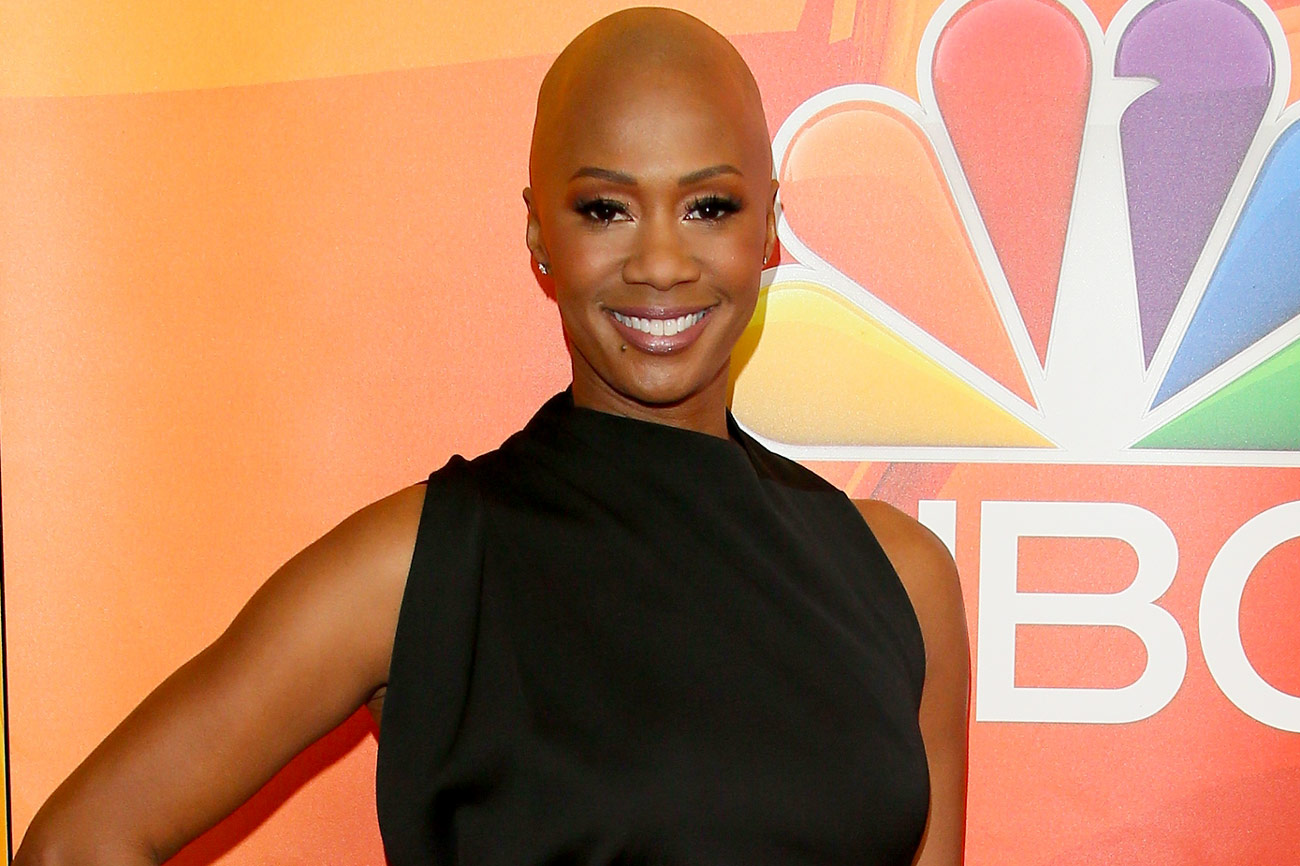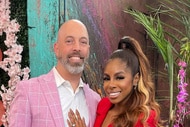
Create a free profile to get unlimited access to exclusive videos, sweepstakes, and more!
Dr. Imani Walker Wants Us to "Get Proactive" About Mental Health in the Wake of COVID-19 and Black Lives Matter
The Married to Medicine Los Angeles psychiatrist hopes to help others better understand their own mental health.

Just because Dr. Imani Walker is a psychiatrist doesn't mean that she hasn't faced her own challenges with mental health. In fact, the Married to Medicine Los Angeles doctor has been open about her experience with depression and anxiety in the past.
Now Dr. Imani is opening up about her mental health journey like never before in her forthcoming book, which we have seen her hard at work on this season of Married to Medicine Los Angeles. "I wanted to volunteer myself as a guinea pig to discussing these issues, because firstly, a lot of health professionals don’t really talk about the struggles that they have had, and I think it’s important for people to know doctors aren’t perfect. We all have our own issues, and honestly, you can get better. You really can get better," Dr. Imani said of her upcoming memoir during a phone interview with The Daily Dish on June 17. "So I just want for people to read about my journey so that they know that they’re not alone. Like, 'Even though Dr. Imani knows all this stuff, she still had to struggle with what to do just like I did.'"
By opening up about her personal struggles, as well as her own family history with mental illness, Dr. Imani said she hopes her book will encourage others to get more in touch with their mental health. "On the outside, in most situations, I look super-relaxed. I’m fine, everything is cool. But for the majority of my life, I’ve been just anxious and depressed all the time. I literally didn’t know it, because those types of symptoms can just kind of creep up on you and then you’re like, 'Wait a second. Why do I feel like there’s a knot in my chest and I can’t breathe?'" she described. "Maybe I’ll say something or write about something that they’ll be able to relate to that will inspire them to get help for their mental issues as well."
Something that is currently impacting the mental health of many is the coronavirus (COVID-19) pandemic, and Dr. Imani said she has seen many people finding it difficult to deal with social distancing, adjusting to working from home, and frequent news updates during this time. "There are a lot of people now with issues with depression, issues with anxiety. I know that the buying of alcoholic beverages jumped up 55 percent in March. So, we’re kind of headed towards this trajectory where, yes, COVID-19 is a pandemic, but we’re about to enter a mental illness epidemic," Dr. Imani said. "I’m at home, but I still have a schedule of a million things that I have to do because more people are experiencing mental health — maybe a recurrence or maybe for the first time."
Dr. Imani suggested exercising, getting outside, eating well, getting enough sleep, and sticking to a daily schedule to maintain your mental and physical well-being during this time. "Pay attention to your mental health the way you pay attention to your physical health," she noted.
Dr. Imani also said that it's important to seek help when you need it. "If [you're] having symptoms, go find help. And the great part about our current climate is that you can get help on your phone. There’s so many tele-help and tele-psychiatry or tele-psychology resources out there. Granted, it may not be the same as sitting in front of a person, but it’s better than just sitting in the house knowing that you are likely having an issue and not doing anything about it," she said. "I think that when it comes to our mental health that we, as a society, really need to get proactive, and we really need to jump on the ball now."
One positive result of people staying at home during this time is that they are better able to "pay attention to the things that are important," including the Black Lives Matter movement, according to Dr. Imani. "I’m just happy that as far as societally, this country right now is ready to have these conversations, because when issues like this occur, like George Floyd or Breonna Taylor or anyone or even Trayvon Martin, there’s a discussion for a while, and then everyone goes back to the status quo," Dr. Imani said. "I’m just happy to see that everyone’s really fervent about it, because I personally have never seen this before in my lifetime."
Dr. Imani has been using her platform to show her support for the movement, including sharing statistics about fatal police encounters among people living with severe mental illness (SMI) in the United States, as well as driving awareness to #BlackLivesWithSMIMatter, in the below Instagram post. "I definitely wanted to shed light on that statistic because the majority of patients that I do treat do have a history of being in jail or prison or being charged [with] a crime and being found mentally incompetent. I would say the majority of my patients are black and brown people," she explained. "Similarly to what’s going on in the country right now, if you don’t know that these things are going on, then you’re just going to be ignorant of the fact that these things happen."
One of the things Dr. Imani said she hopes comes out of these discussions is re-evaluating how we approach situations involving someone with a severe mental illness. "I don’t have a problem with there being police for serious crimes, but the police unfortunately are being asked to intervene on lots of situations that are not criminal in nature," she said. "So I would love to see professional citizens who go out and deal with the domestic dispute or need to be called to evaluate somebody who might be having severe mental illness. These are not things that people with guns should show up for."
Dr. Imani will continue the conversation around mental health in her new podcast, Imani State of Mind, which she hopes will give people the tools to better understand what's going on in their own minds. "Basically it’s me breaking down psychiatry. I want to be able to empower people with the right words to use when it comes to mental health and when it comes to mental illness," Dr. Imani told The Daily Dish. "I also just want to show people I’m a really funny, goofy person, and definitely, like, a huge nerd. And so, for me, psychiatry, yes, medical specialties and medicine in and of itself can be a very serious business, but psychiatry’s actually really fun. I just want for people to be able to have a resource and just not always identify mental illness with something bad."
— Additional reporting by Peyton Weiss






























